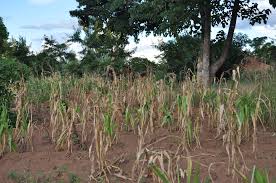
At least 3 000 protesters gathered in Kitowise, Poland, to demand a fair deal from the crunch climate talks which have entered week two in the coal-rich city. The marchers defied a year-old anti-terrorism law which bans demostrations in Poland.
The ministers and world leaders flying into Kotowise to hash out an ambitious deal to turn down global warming well below two degrees Celsius. However, frustrations creeping in as big polluters, including the United States, Saudi Arabia and Kuwait, on Saturday swayed the negociations to cast away new evidence from the International Panel on Climate Change (IPCC) which indicates that global temperature rise hit htree percent this year.
The exclusion of the new evidence from the negotiations has infuriated activists and others who took the same streets to express their dissastisfaction with the pace of negotiations in which countries spent hours discussing whether to note or welcome the IPCC report.
In an interview, Stephan Singer, from the Climate Action Network, asked least-developed countries to demand justice from the developing countries. “While the big polluters are avoiding calls for ambitious targets, the least-developed countries are suffering catastrophic aftermaths of their failure to take bold steps and act now.”
The 24th conference of parties to the United Nations Climate Change Conventions marks the deadline fro world leaders to come up witha rulebook fro making the Paris agreement work.
Malawi is one of the 197 countries that have signed up to the global climate change accord announced in Paris in 2015.
The country is part of the Africa Group as well as the G77 plus China stream which have set out to get highly polluting developed countries to make high finacial pledges towards lessening the impact of climate change in poor countries.
Julius Ngoma, who leads the national civil society organisations on climate change in Malawi, called for accessible mitigation and adaptation funding, including Green Climate Fund (GCF), which no single non governmental organisation in Malawi has ever accessed.
He said, “Malawi, as one of the world’s poorest countries, needs additional funding to adapt the negative impacts of climate change. At previous COP negotiations, developed countries agreed to create dedicated funds, namely the Adaptation Fund and GCF, to help developing countries such as Malawi finance climate change adaptation and mitigation work.”
“These funds are unique in their emphasis on providing money directly to national institutions in developing countries. Unfortunately, meeting requirements to apply for funding has not been easy for all countries, including Malawi.”
Source: The Nation_December 12, 2018_By James Chavula
